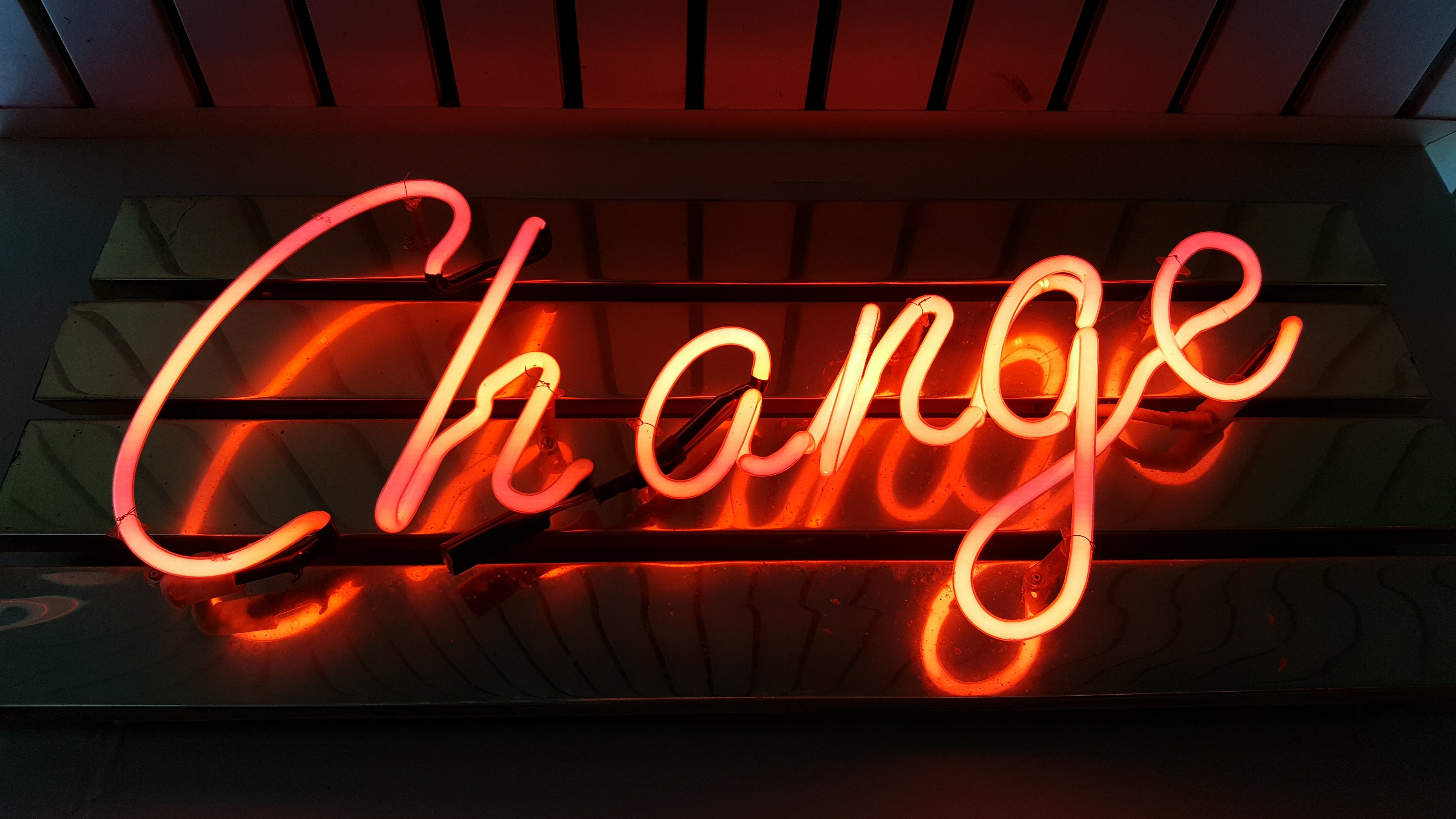
“People don’t change.” Where did this idea come from? We all seem to be able to accept that change is one of the inevitabilities of existence; we agree that everything in the universe is constantly moving, growing, shifting. Then why, when it comes to a person’s capacity to change, do we become abject pessimists.
Beliefs like, “People don’t change” and “You can’t teach a dog new tricks,” or “She’ll never change,” and “That’s just who he is,” seem like they are true because they are a self-fulfilling prophecies. These beliefs lead to problematic feelings like apathy, hopelessness, fear, boredom, and depression, and these feelings reduce our energy and our motivation, making it difficult to implement positive changes to our lives. The beliefs are then reinforced, and the cycle continues. But the reality is that believing you can’t change is the obstacle to change—it’s an excuse to stay in your comfort zone and avoid challenges and opportunities for personal growth and development.
You may argue that we can’t change who we really are. Yes, it is true that we are born with certain capacities and vulnerabilities, and we do develop a personality that is influenced by nature and nurture. It is also true that everything that we have done in our lives up to now has trained our brains to respond in a certain way through the development of neural pathways. The more consistently we perform a behaviour (including how we think), the more automatic it becomes. These automatic responses and behaviours are called habits. Ever heard the saying, “Old habits are hard to break?” Did you see the word, “impossible” in there?
Change is possible! Even at a brain level! Research has shown that our brains have the remarkable capacity to change, in other words, no matter how entrenched a behaviour or strong a neural pathway has become, we have the power to weaken current pathways and to generate new ones. This is known as neuroplasticity.

For instance, research has shown that mindfulness practice over relatively short periods can actually change the structure of the brain & stimulate neuronal growth in the areas of our brain responsible for planning and decision-making. Any challenging mental or physical activity has the capacity to stimulate new neural connections in your brain.
Why is this important? Well, if your brain can change, you can change! No more excuses, you did not kill too many brain cells, you are not too old, your personality is not set in stone. And you have the power to set all this in motion.
Steps toward successful change:
1. Awareness: It’s obvious, right? You need to be aware that something needs to change in order to change it. This requires the ability to objectively observe your own thoughts, feelings and behaviours (in other words the ability to be mindful) and to be able to identify and reflect on what is helping you and what is hindering you.
2. Desire: You have to want to change. Many of us are aware of our flaws but have no desire to do something about it. Maybe have another look at it, are you saying you don’t want to because you think you can’t or you think it will be too hard? To work out whether you want to make a change or not, it can help to do a pros and cons list. Evaluate the list according to your values by circling the pros and cons that are most important to you. You may find that this exercise will give you some clarity as to why you do or do not want to change, and how much it really means to you.
3. Mindset: If you do want to change, make sure you enter the change process with the most effective mindset. Your mindset is your mental attitude that determines how you interpret and respond to situations and circumstances. Here are five qualities of an effective mindset:
- Back Yourself: Self-belief and an optimistic outlook will help strengthen your resolve toward positive change. Say to yourself, “I have the capacity to change.”, “I can do it.”
- Be Vulnerable: Be willing to ask for help when you need it. Tell yourself, “It’s okay to ask for help,” “There are people and resources out there that can assist me,” “I can do it with the right supports and information.”
- Be Resilient: Resilience is the capacity to recover or adapt quickly to difficult and stressful situations, and it’s often referred to as the ability to “bounce back” from adversity. To achieve our goals, we need to persist beyond challenges and obstacles that present themselves along the way. Instead of getting weighed down by guilt and self-criticism, view failures as a challenge. Cultivate a resilient mindset by accepting that change, uncertainty and painful experiences are part of life and know you will find a way to cope no matter what happens. Tell yourself, “I can cope with setbacks,” and “I will learn from my mistakes and move forward.”
- Be Realistic: It’s important to be realistic about the process of change. Change does not occur in a linear way, it is often challenging, distressing and full of setbacks. Change takes time and patience which can feel frustrating and make you want to give up. Remember that “change is possible” but there is effort involved. Make sure to also have realistic expectations using the following guidelines for goals:

- Make your goals realistic for you—do not base your goals on other people’s standards or abilities. If you tend to be perfectionistic in your expectations of yourself, it may be helpful to ask for assistance to set more realistic goals—from a good friend, family member or professional.
- Make your goals specific—Instead of: “I want to be healthier”, say: “I will eat three servings of vegetables a day” or “I will do 10000 steps three times per week.”
- Make your goals measurable—how will you know you have achieved your objective? You need to find a way to track your goal to measure steps toward success.
4. Effort: The final step toward successful change is effort. If you want to make significant changes in your life, you have to be willing to work for it. Wishing for something does not make it come true—this is the stuff of fairytales. In reality, transforming your life requires focus, planning, consistency, patience, persistence & determination. Meaningful change and pursuing your dreams are not meant to be easy—embrace the struggle and focus on solutions. And don’t forget to reward yourself for every step toward your goals. Tell yourself, “I will put in the effort,” “I will keep going until I succeed,” “I will embrace the struggle,” and “Well done!”
“If there is no struggle, there is no progress.”
Frederick Douglass

